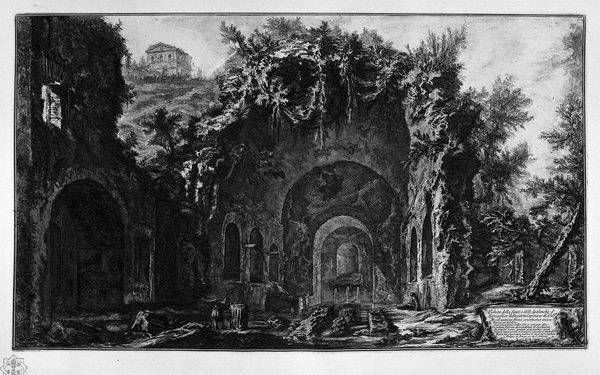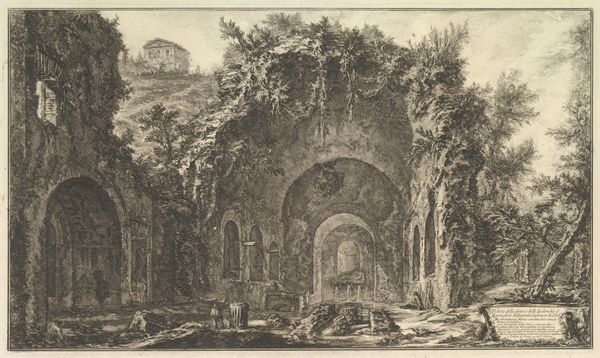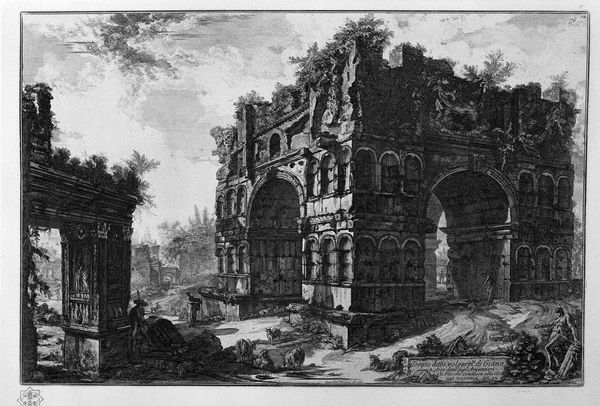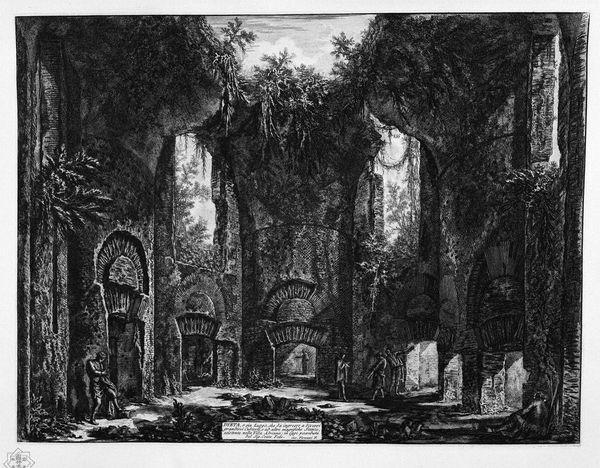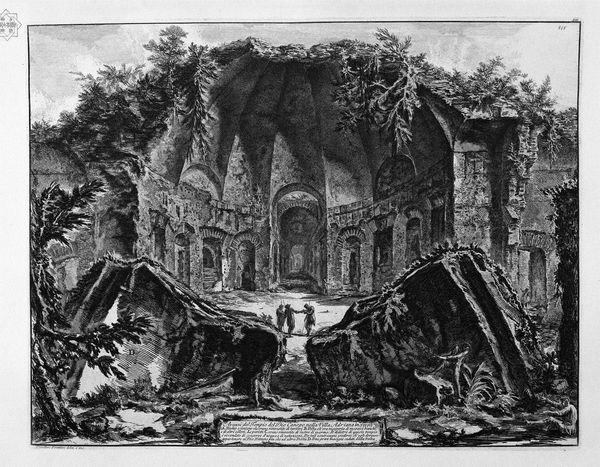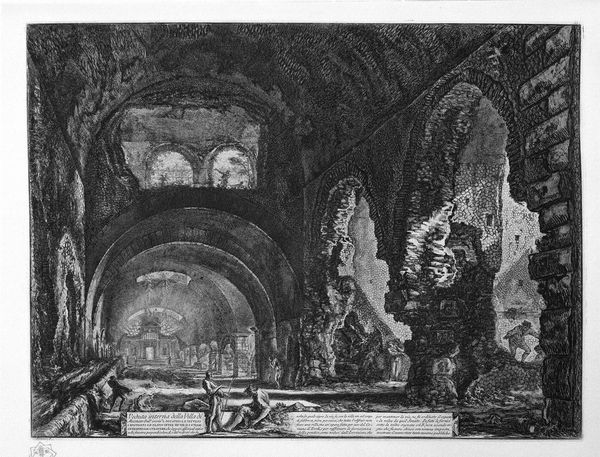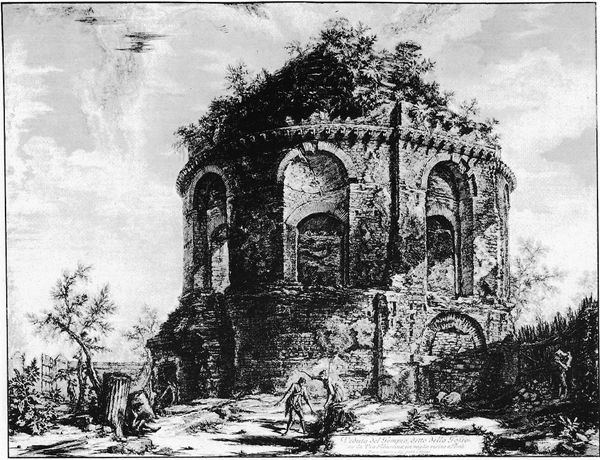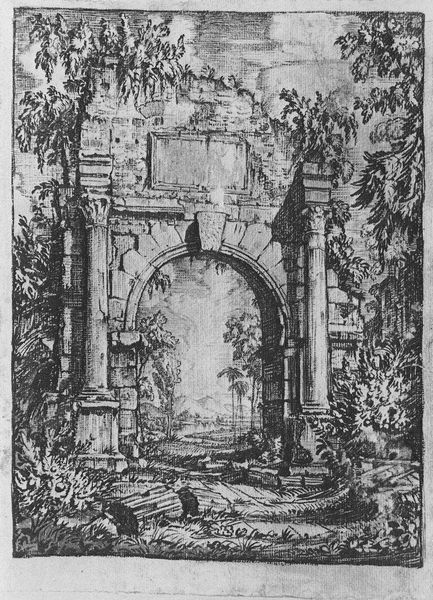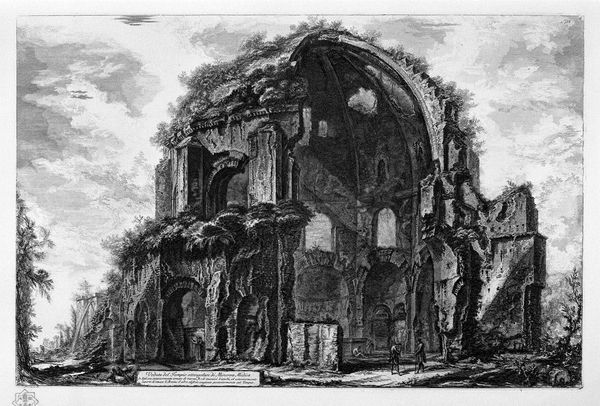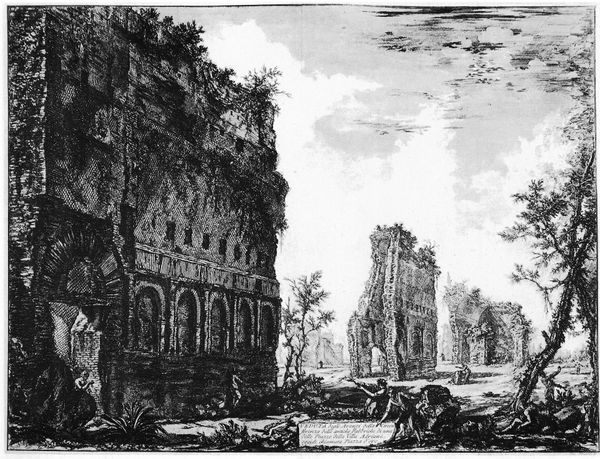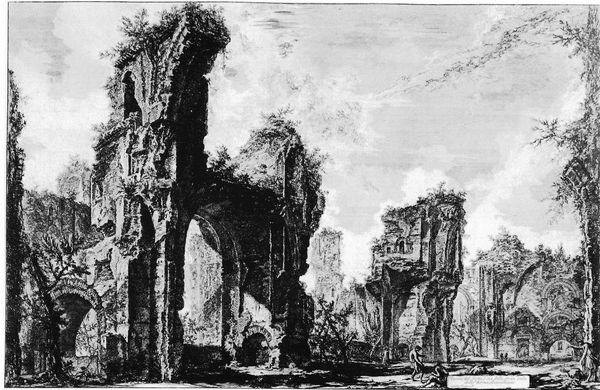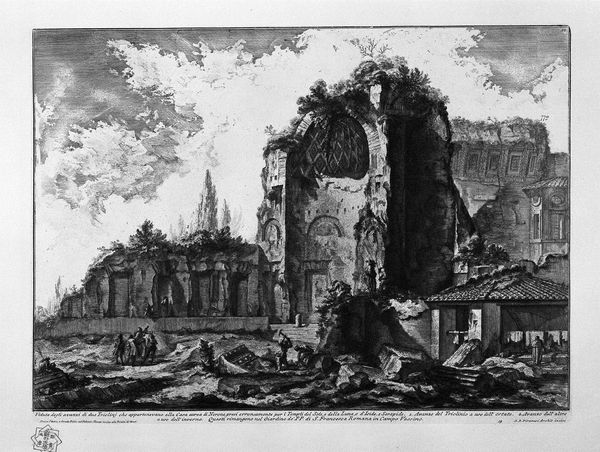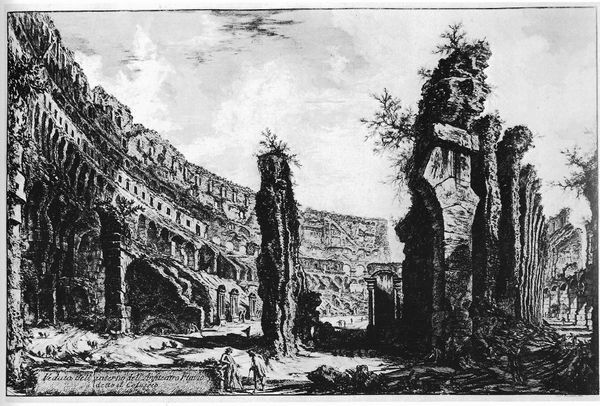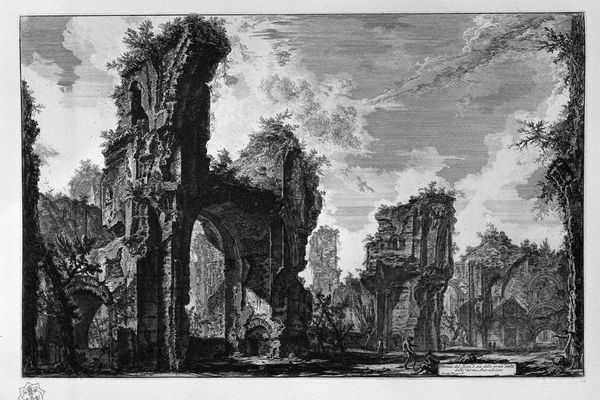
print, etching, engraving, architecture
#
baroque
# print
#
etching
#
landscape
#
holy-places
#
form
#
romanesque
#
arch
#
line
#
cityscape
#
history-painting
#
engraving
#
architecture
#
monochrome
Copyright: Public domain
Giovanni Battista Piranesi made "Vedute di Roma" using etching techniques in 18th century Italy. The print exemplifies the 18th-century fascination with ruins as emblems of past grandeur, inviting reflection on the passage of time and the transience of power. Piranesi capitalizes on a burgeoning tourist industry, driven by wealthy Europeans on the Grand Tour seeking authentic encounters with classical antiquity. His dramatic compositions, however, are not mere documentation; they are theatrical stagings that heighten the emotional impact of the scene. The image creates meaning through manipulation of scale and perspective, dwarfing the figures and emphasizing the monumental presence of the ruins. To fully grasp the cultural resonance of Piranesi's work, one must consult archaeological reports, travelogues, and architectural treatises of the time. The history of art is contingent on its social and institutional context.
Comments
No comments
Be the first to comment and join the conversation on the ultimate creative platform.
